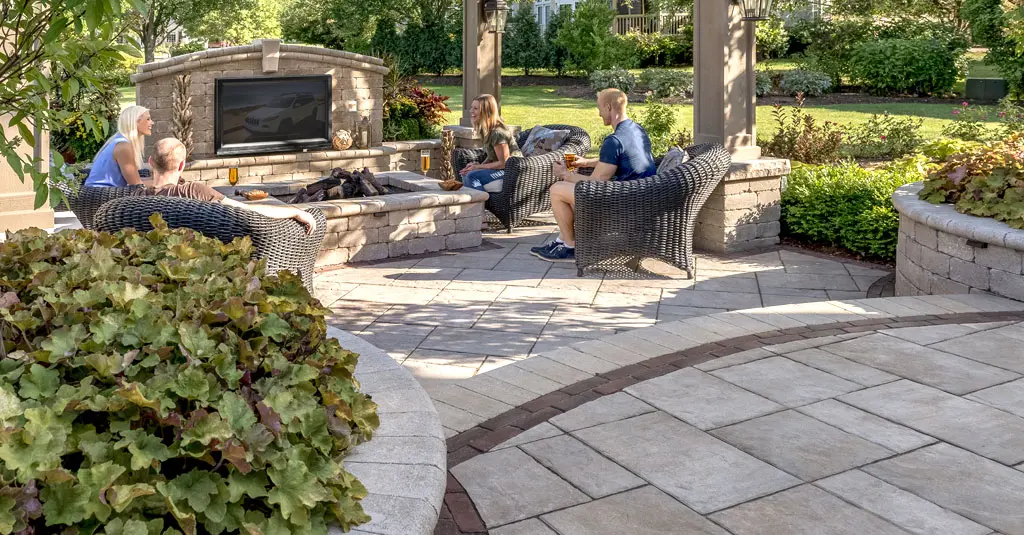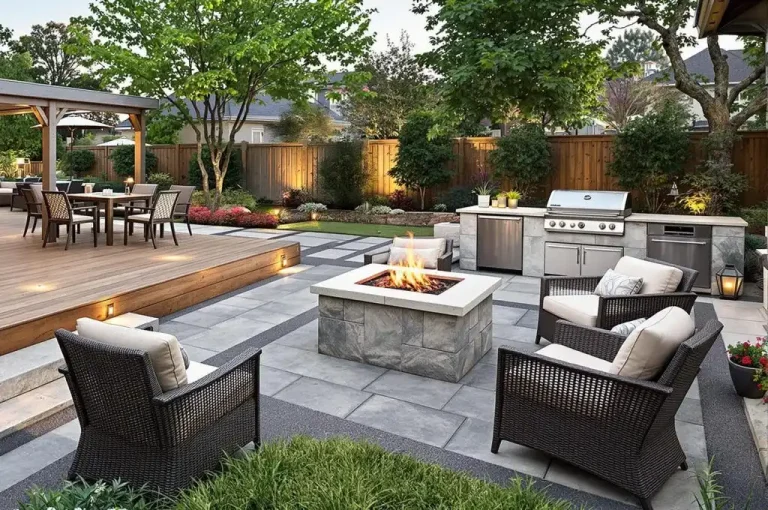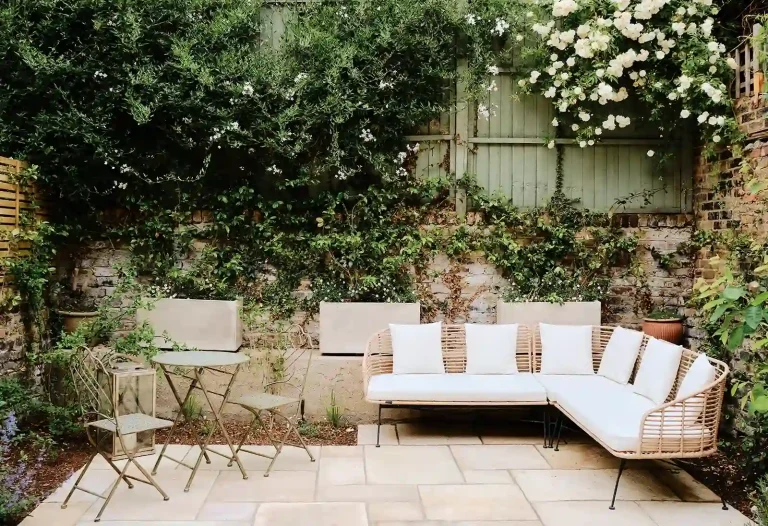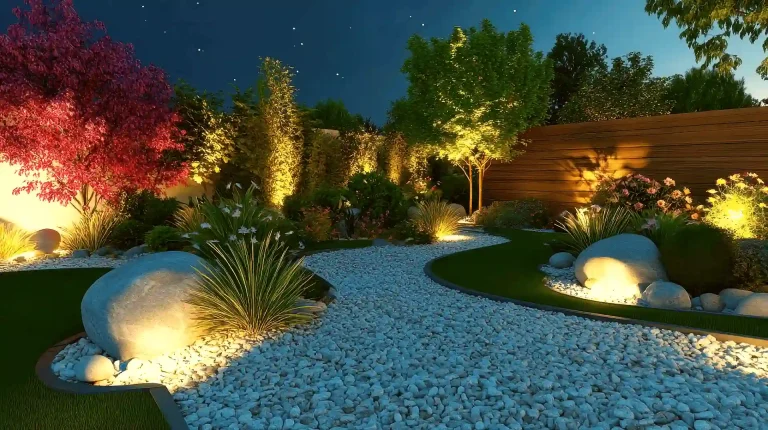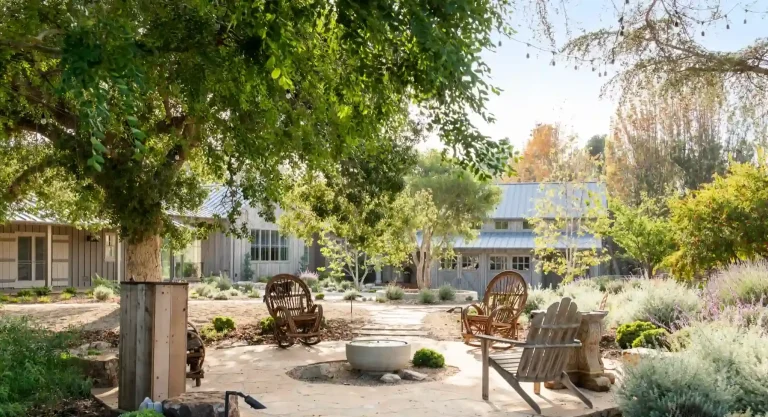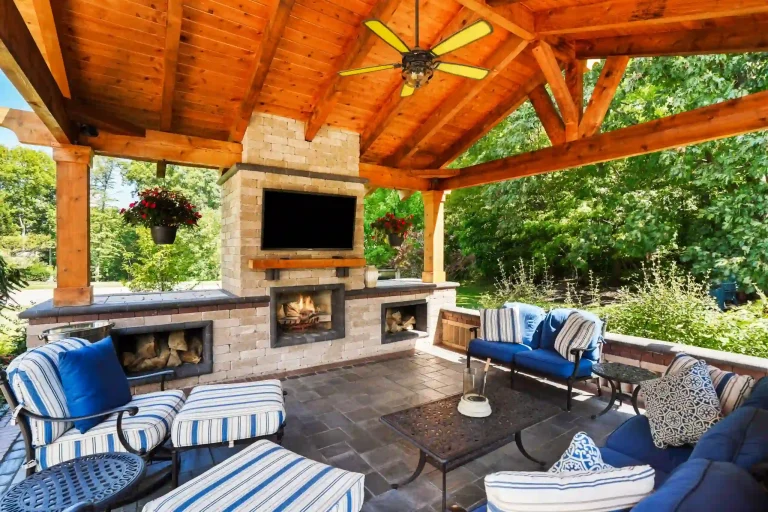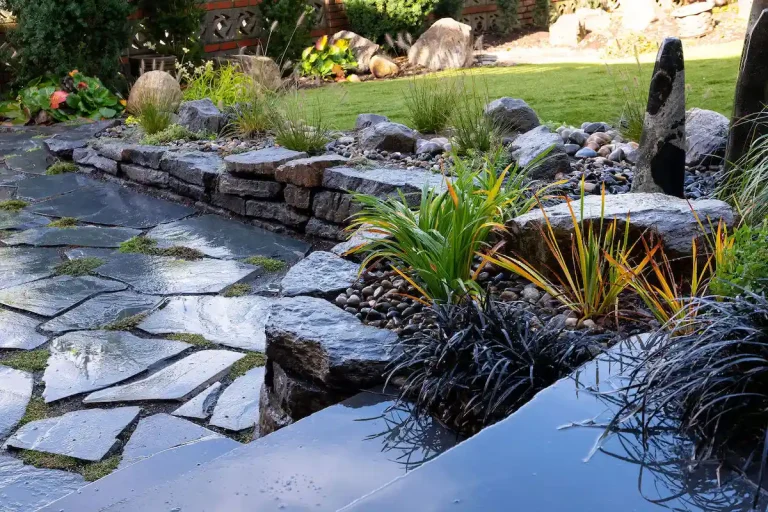Hardscape Design With Pavers: Ultimate Guide to Durable, Stylish Outdoor Surfaces
What Does Hardscape Design With Pavers Entail?
Hardscape refers to the non-living, structural elements of a landscape or outdoor space, such as walkways, patios, driveways, retaining walls, and seating walls. When we talk about hardscape design with pavers, we mean planning and constructing those structural elements using paver units (stone, concrete, brick, porcelain) as the surface material.
A good hardscape design with pavers involves:
-
Site assessment (slope, drainage, soil conditions)
-
Design layout (pattern, style, color coordination)
-
Base and sub-base preparation
-
Edge restraint and joint infill
-
Proper installation technique
-
Sealing, finishing, and maintenance plan
Why pavers? Unlike a monolithic poured concrete slab, pavers offer flexibility, aesthetic options, and easier maintenance. They interlock and can move slightly with soil changes, reducing cracking.
Why Use Pavers in Hardscape? Benefits in Detail
Enhanced Durability and Crack Resistance
One of the central benefits of hardscaping with pavers is that they resist major cracks. Because pavers are set as many individual units, the system is flexible. The joints between pavers absorb small movements and expansion without large visible fractures. Additionally, many pavers are manufactured with high compressive strength (e.g., concrete pavers pressed under high pressure), making them more resilient than standard concrete slab pouring.
If a single paver gets chipped or damaged (e.g, from impact or root growth), you can easily lift that one, replace it, and restore the surface rather than tearing out an entire slab.
Design Versatility & Aesthetic Appeal
Pavers come in a wide array of shapes, sizes, colors, and textures, allowing virtually unlimited design freedom. You can create patterns like herringbone, basket weave, running bond, or custom layouts. You can mix contrasting colors or accent lines for visual focus.
In addition, pavers integrate well with other materials (wood decking, gravel, landscaping beds) for a harmonious outdoor composition.
Ease of Repair & Maintenance
Maintenance is simpler than for poured concrete: sweeping, occasional rinsing, and resealing as needed. If a paver becomes stained or cracked, you remove and replace it rather than resurfacing an entire area. This modularity is a key practical benefit for homeowners.
Improved Drainage & Environmental Benefits
Many paver systems are permeable or allow for controlled drainage, helping water infiltrate rather than run off. That reduces flooding risk, erosion, and stress on stormwater systems. It also aids groundwater recharge in some designs.
Because of this, well-designed paver hardscape can contribute to sustainable landscaping practices.
Increased Property Value & Curb Appeal
A professionally done paver hardscape adds perceived value to a property. It gives a high-end finish to patios, driveways, and walkways. Buyers often see paver surfaces as premium upgrades.
Also, because pavers age gracefully (with color integrated into the material), their appearance holds up well over time.
Understanding Paver Types and Choosing the Right One
Because “hardscape design with pavers” covers many types of pavers, it’s important to understand the distinctions to choose the right one for your project.
Concrete Pavers
Concrete pavers are made from cement, aggregates, and pigments pressed into molds. They are very common, cost-effective, and available in many shapes. The controlled manufacturing process yields strong, uniform units with good durability.
They are often used in driveways, patios, and walkways.
Natural Stone Pavers
Natural stone pavers (e.g., granite, slate, bluestone) offer a premium look, with texture and variation. The trade-off is often a higher cost and more effort in leveling/fitting.
Porcelain & Architectural Slabs
Porcelain pavers are a more modern option, offering sleek, tile-like surfaces with high durability, stain resistance, and low maintenance. They can bridge the look of indoor/outdoor continuity when matched to interior tiles.
Clay Brick Pavers
These traditional pavers provide a classic, warm aesthetic. They age well and weather naturally. However, clay bricks may be more brittle than concrete and require careful installation.
Permeable / Interlocking / Percolating Pavers
These systems are engineered to allow water infiltration. They usually have gaps or underlying aggregate layers to let rain pass through, reducing runoff. These are ideal when environmental drainage matters.
Real Product Examples You Can Buy Today
Below are 5 world-renowned paving products from leading global brands. Each represents premium quality, long-term durability, and diverse design potential for your hardscape project.
1. Belgard Mega-Arbel Pavers
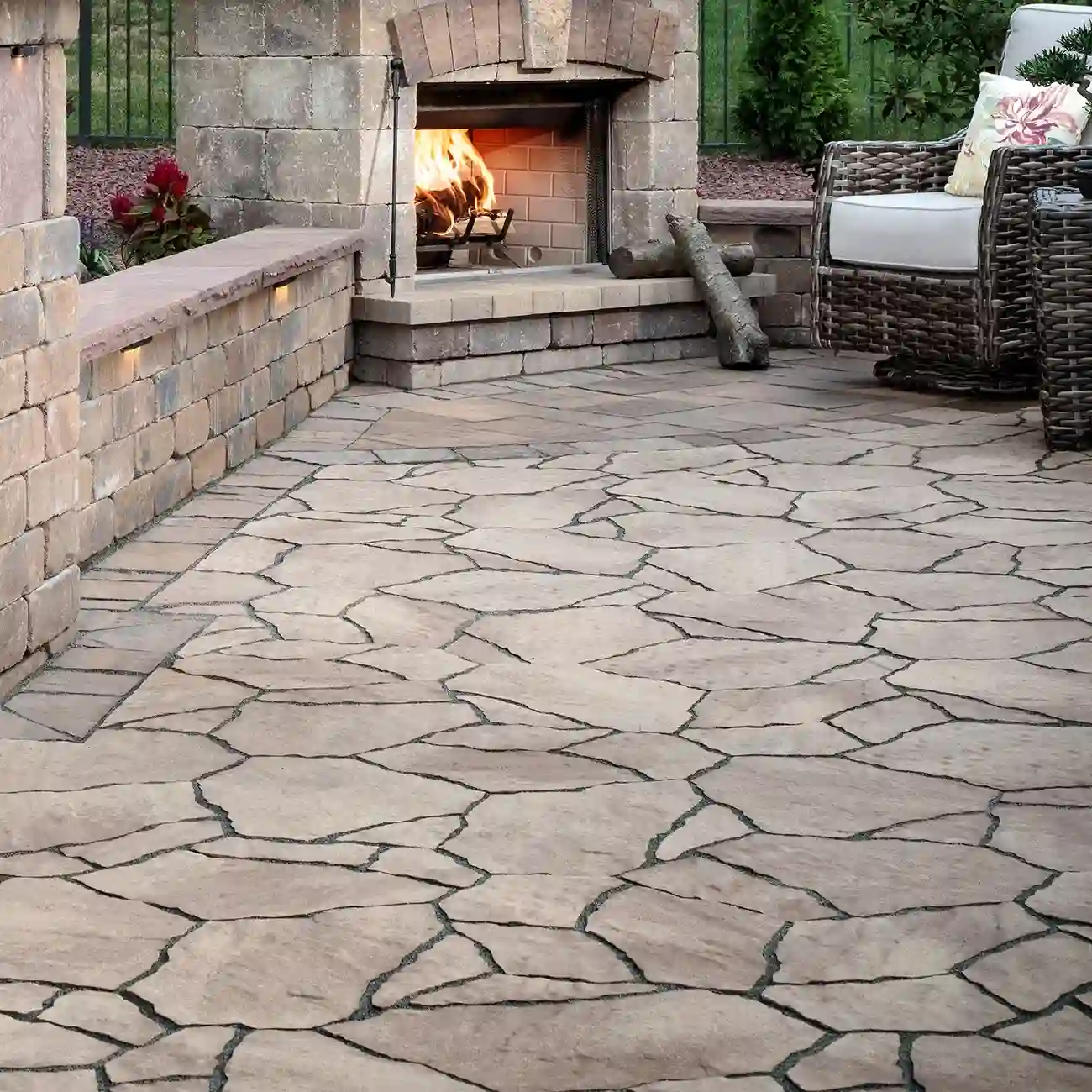
Belgard Mega-Arbel interlocking pavers mimic natural flagstone with the stability of concrete, ideal for patios, walkways, and pool decks. Belgard is one of North America’s most trusted hardscape brands.
Details & Strengths:
-
Natural stone appearance with irregular edges for organic aesthetics
-
High compressive strength and an interlocking system for stability
-
Works well in residential or light commercial applications
Use Case / Problem It Solves:
When you want the look of stone without the cost or irregular installation, Mega-Arbel gives a realistic flagstone look with consistent thickness for easier laying.
Why Use It / Benefits in Hardscape:
Its modular design simplifies installation while maintaining natural appeal. Excellent for creating rustic patios or garden paths that integrate seamlessly with surrounding landscapes.
Where to Buy / How to Buy:
Available through Belgard dealers and authorized distributors worldwide. Use Belgard’s dealer locator to find nearby suppliers.
2. Unilock Beacon Hill Flagstone Pavers
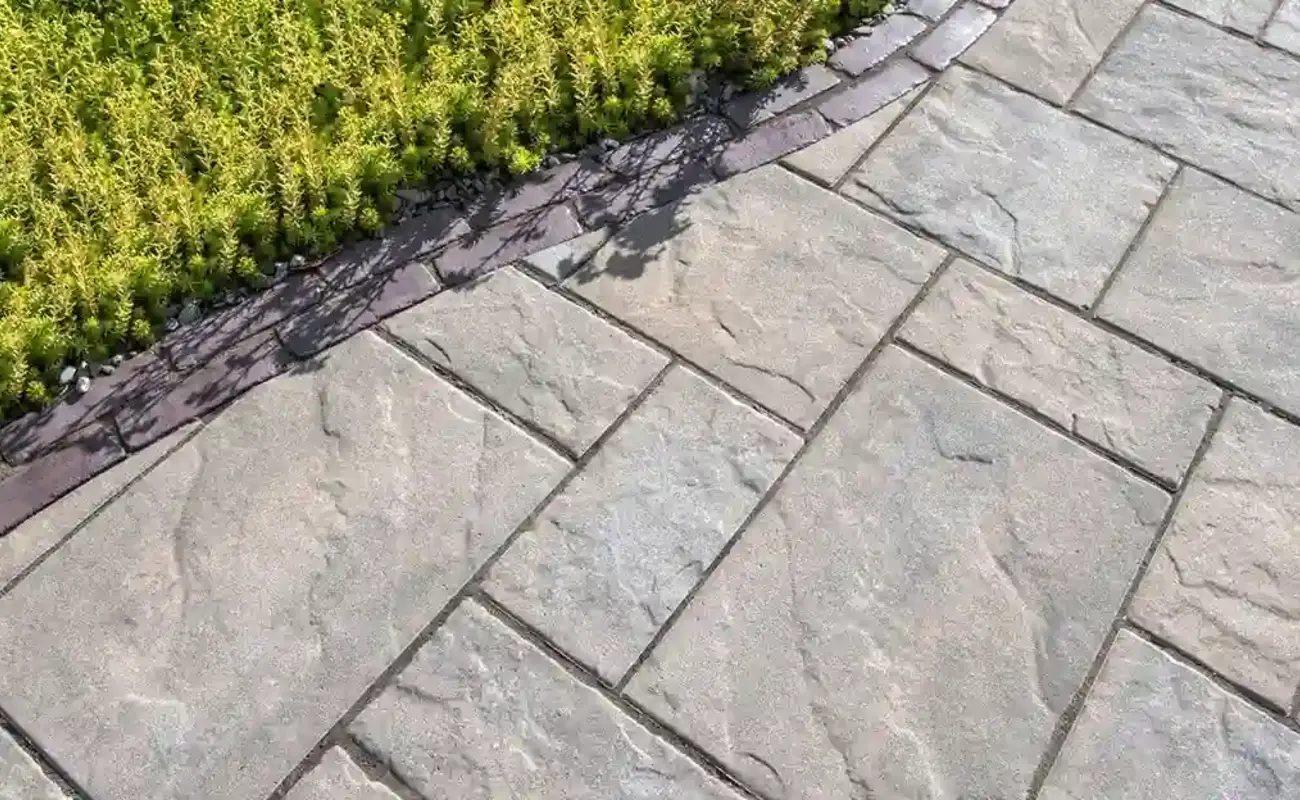
Unilock Beacon Hill is a popular choice for patios and walkways. Beacon Hill Flagstone features blended colors and a lightly textured surface.
Details & Strengths:
-
Combines aesthetic sophistication with durability
-
Comes in multiple blended tones for natural variation
-
Manufactured using EnduraColor technology to prevent surface fading
Use Case / Problem It Solves:
Perfect for homeowners wanting a natural flagstone texture with the consistency and performance of concrete. Avoids uneven surfaces common with real flagstone.
Why Use It / Benefits in Hardscape:
The enhanced color technology keeps your patio vibrant for years, and its modularity allows straightforward repair or replacement.
Where to Buy / How to Buy:
Purchase directly from Unilock Authorized Contractors or landscape supply centers in North America.
3. Techo-Bloc Blu 60 Slate Pavers
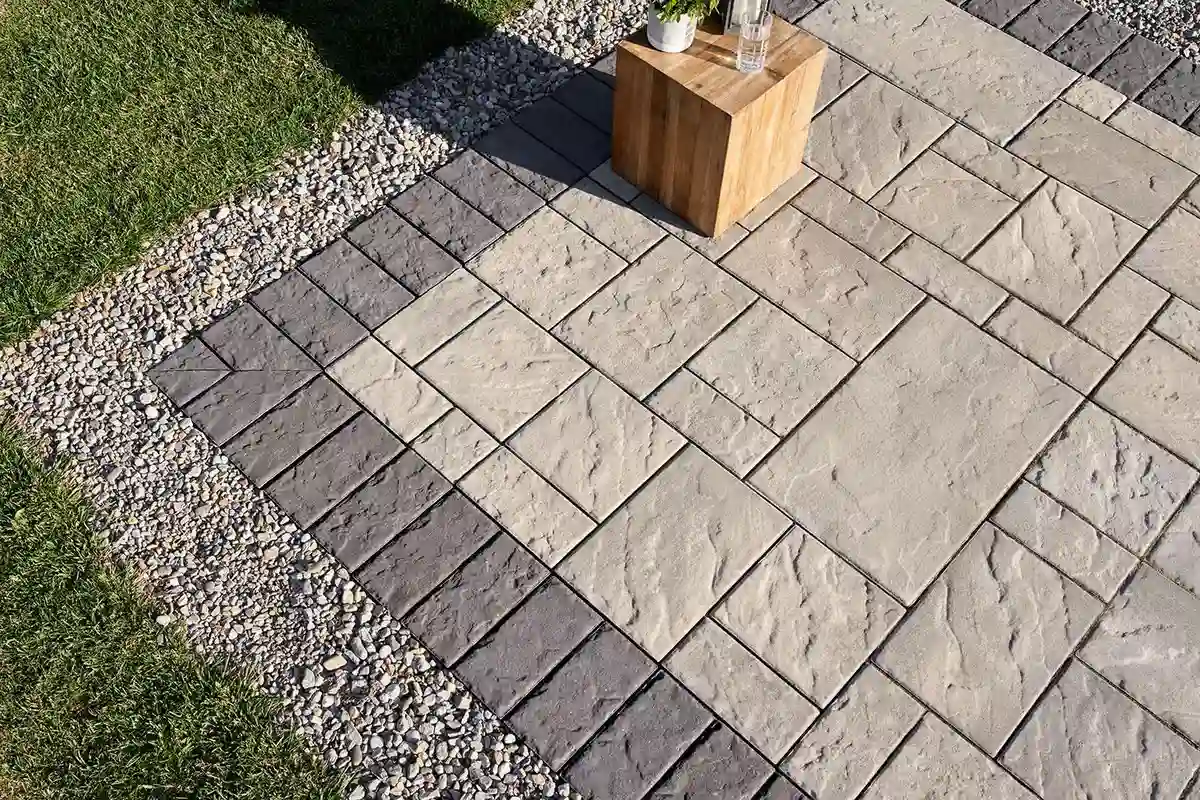
Techo-Bloc’s Blu 60 is a premium concrete paver line that combines strength and style. It’s ideal for driveways, patios, and pool decks.
Details & Strengths:
-
Ultra-dense concrete mix for freeze-thaw durability
-
Non-slip texture for poolside and wet areas
-
Offered in multiple sizes and finishes
Use Case / Problem It Solves:
When traditional concrete slabs crack due to climate or load, Blu 60’s interlocking modular system resists heaving and cracking while keeping a smooth finish.
Why Use It / Benefits in Hardscape:
The high density prevents salt and frost damage, crucial for cold climates, while the color and texture options offer design flexibility.
Where to Buy / How to Buy:
Available through Techo-Bloc dealers in North America, Europe, and selected international markets.
4. Pavestone Holland Stone Pavers
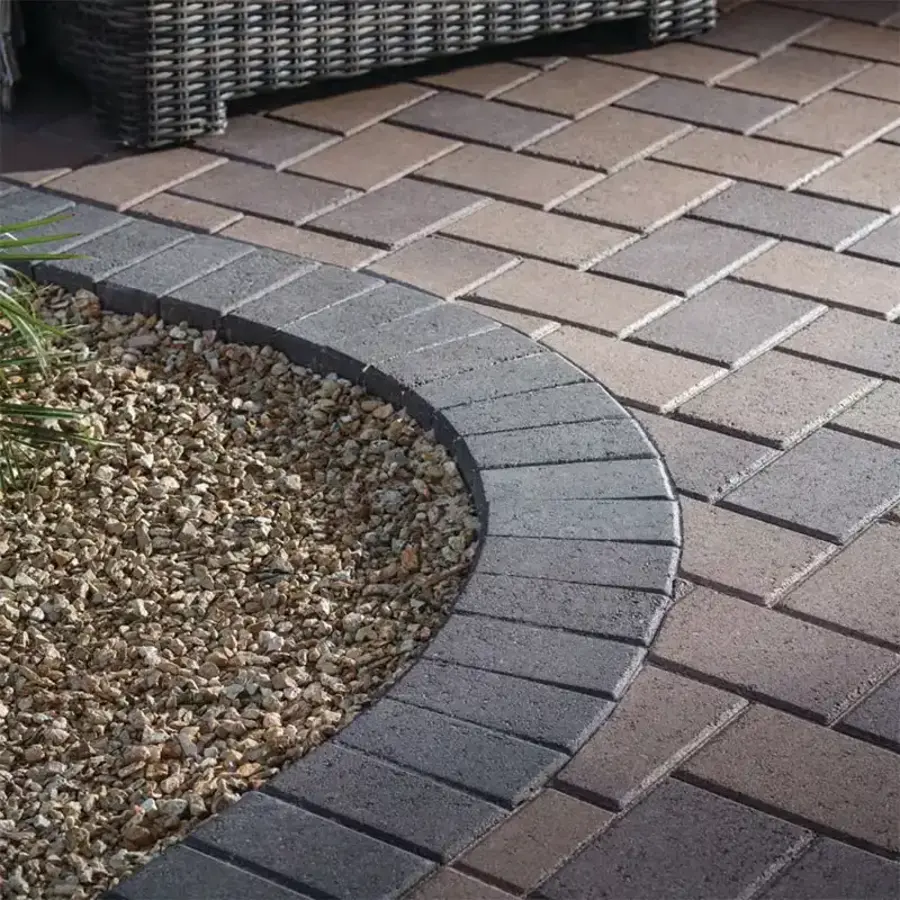
Pavestone Holland Stone is one of the most recognized and versatile paver shapes in the world. Holland Stone offers timeless design and robust performance.
Details & Strengths:
-
Rectangular shape suits herringbone, basket weave, or running bond layouts
-
Economical yet strong enough for driveways or walkways
-
Comes in various earth tones for adaptable designs
Use Case / Problem It Solves:
Ideal for cost-effective, classic driveways or large walkways where pattern flexibility and load strength matter most.
Why Use It / Benefits in Hardscape:
Simple geometry ensures easy installation, pattern variation, and easy replacement of individual units over time.
Where to Buy / How to Buy:
Found at major home improvement retailers (e.g., Home Depot, Lowe’s) or through Pavestone distributors.
5. Cambridge Ledgestone Pavers
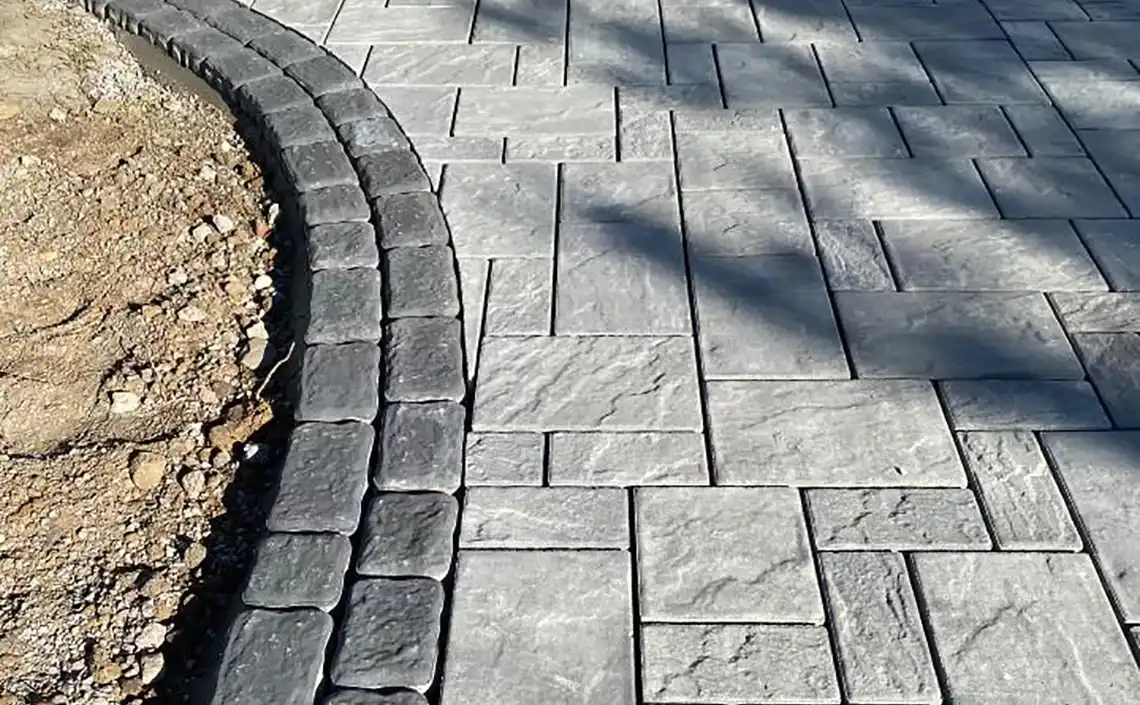
Cambridge Pavers’ Ledgestone series blends natural texture and precision manufacturing. It’s known for strength, color richness, and a timeless look.
Details & Strengths:
-
Made with ArmorTec technology for lasting color
-
Ideal for patios, pool decks, and outdoor living spaces
-
Slip-resistant texture and durable construction
Use Case / Problem It Solves:
For homeowners wanting a refined natural stone look with minimal maintenance, these pavers resist fading, wear, and staining.
Why Use It / Benefits in Hardscape:
They elevate the design aesthetics of any outdoor space while maintaining performance. Great for blending with outdoor kitchens or fire pits.
Where to Buy / How to Buy:
Available via Cambridge Pavers dealers in the U.S. and select international distributors.
How These Product Examples Support Your Design
Each product example demonstrates a different facet of hardscape design with pavers. Use heavier blocks for driveways, square or accent blocks for patterns, decorative steps for garden pathways, and composite pavers to merge deck and paving aesthetics. When you buy pavers for hardscape design, you select the right material for each zone.
Use Cases & Problems Solved by Hardscape With Pavers
Creating a Durable Patio That Won’t Crack
Problem: A homeowner poured a concrete slab for a backyard patio. After a few seasons of expansion, thaw cycles, or slight soil shifts, cracks appeared.
Solution: Replace or overlay with a properly designed paver system. The multiple joints in pavers absorb movement, preventing large, visible cracks. If one paver fails, you replace only that section.
Designing a Designer Walkway Through the Garden
Problem: You want a walkway across a garden but prefer minimal disruption to plantings and water flow.
Solution: Use stepping stones (like the Garden Central 12″ x 12″ steps) or permeable pavers. These allow water infiltration and minimal ground disturbance, while guiding foot traffic.
Building a Driveway That Matches the Home Aesthetic
Problem: The visual style of your home is modern or classic, but you want a driveway that complements it while being functional.
Solution: Use premium thickness blocks (like Paving Block VUB K-400 8 cm) and incorporate patterns, borders, and color coordination that match your facade. The paver design lets you create custom shapes and accents.
Pool Deck or Terrace With Slip-Resistance & Design
Problem: Around pools or terraces, surface slipperiness and aesthetics matter. Traditional tiles may be slick or hot underfoot.
Solution: Use textured pavers or specialized porcelain pavers with non-slip surfaces. The modular system also allows better drainage control and quicker repairs.
Retrofit or Expand Hardscape Over Time
Problem: You already have a paved area but want to expand or redesign later.
Solution: Because paver systems are modular, you can match new pavers to existing ones and integrate expansions. You’re not constrained to one large slab.
How to Buy Pavers (For Hardscape Design) & Where to Purchase
Steps to Buying: Best Practices
-
Calculate your area: Measure square meters or square feet of your hardscape zones (patio, driveway, walkways).
-
Add waste/margin: Add 5–10% extra for cuts and breakage.
-
Select thickness and class: For pedestrian zones, 6 cm blocks usually suffice; for vehicular areas, go 8 cm or stronger (e.g, class K-400).
-
Choose type & style: Concrete, natural stone, porcelain, based on aesthetics & budget.
-
Match color/materials across different zones for cohesive design.
-
Order from a reputable supplier: Check reviews, ask for product samples.
-
Schedule delivery & staging: You’ll need pallets and space near the installation area.
-
Hire a quality installer or DIY: Proper base prep, compaction, edge restraint, and joint filling matter more than the pavers themselves.
Places to Buy & Affiliate-Style Linking
-
Local masonry yards or building material stores: Great for seeing and feeling samples.
-
Concrete block manufacturers/paving plants: Bulk orders may be cheaper.
-
Online building material marketplaces (in your region): Many support affiliate linking or partner programs.
-
Landscaping supply retailers or specialty hardscape vendors: They often carry premium or imported pavers.
Install Tips & Best Practices (Without Using Tables)
-
Start with site grading and drainage planning. Always slope the surface away from structures (e.g., 1–2%) to avoid water pooling.
-
Excavate to a depth accounting for sub-base + bedding + paver thickness. Use compaction equipment on each lift.
-
Use a geotextile fabric under the base if the soil is weak, to separate the subsoil and base aggregate.
-
Build a well-compacted base of crushed rock or gravel in 5–10 cm lifts, compacting each layer.
-
Add bedding sand (e.g., 1 cm of clean, coarse sand) to provide a level bed for the pavers.
-
Lay pavers in your desired pattern, gently tapping them into place with a rubber mallet.
-
Use edge restraint systems (plastic or concrete) to keep pavers from shifting outwards over time.
-
Fill joints with polymeric sand or jointing sand, and compact the pavers again to set them.
-
Seal the surface (if appropriate for the material) to protect from stains, UV, and wear.
-
Maintenance plan: annual inspection, polymeric sand touch-ups, occasional pressure washing.
These steps ensure your hardscape stands the test of time, with minimal repair.
Frequently Asked Questions (FAQ)
Q1: Which type of paver is best for a driveway vs a patio?
Answer: For driveways or vehicle zones, you want thicker pavers (e.g., 8 cm or class K-400) made of strong materials like concrete or dense natural stone. For patios or pedestrian zones, 6 cm pavers are usually adequate. The key is matching load expectations with paver strength and base design.
Q2: Do I need to seal my pavers?
Answer: Sealing is optional but recommended in many cases to protect against stains, UV fading, and wear. Sealer can also help prevent weed growth between joints. Some paver types (like porcelain) may require less sealing, depending on manufacturer recommendations.
Q3: How long will a properly installed paver hardscape last?
Answer: When installed correctly with proper base, compaction, edge restraint, and maintenance, paver hardscape can last decades, 20 to 30 years or more. Since individual units are replaceable, longevity is often limited by maintenance rather than structural failure.
